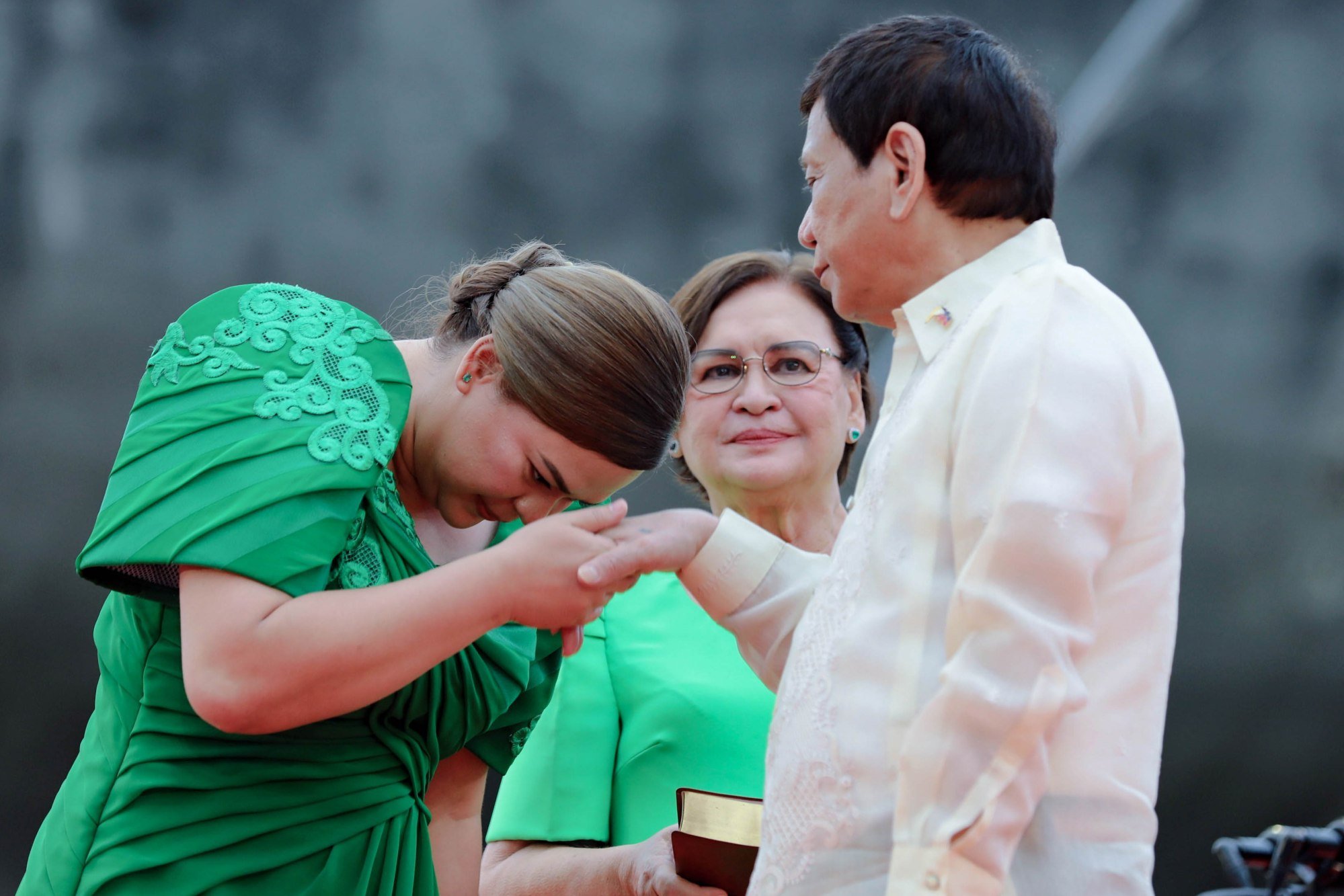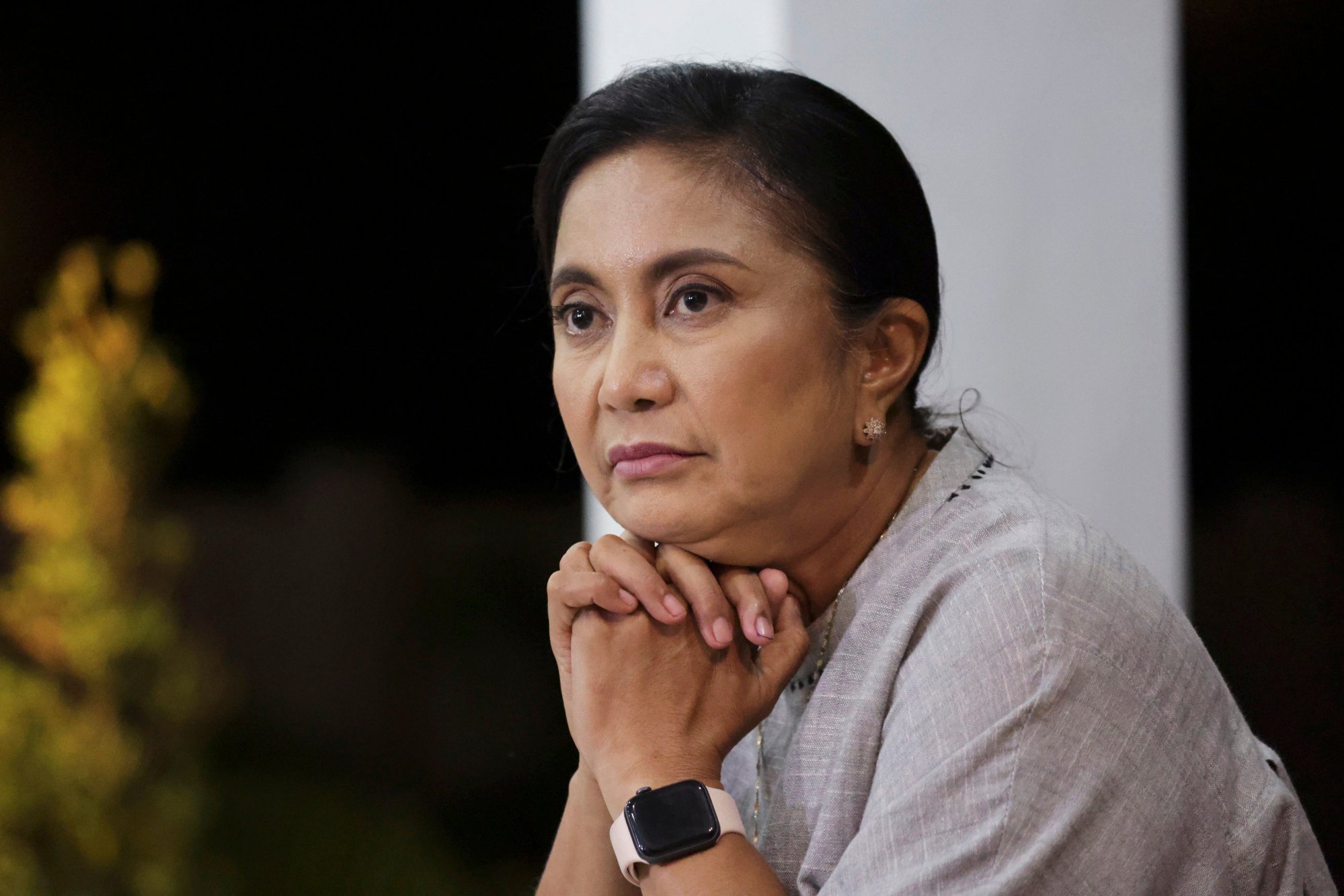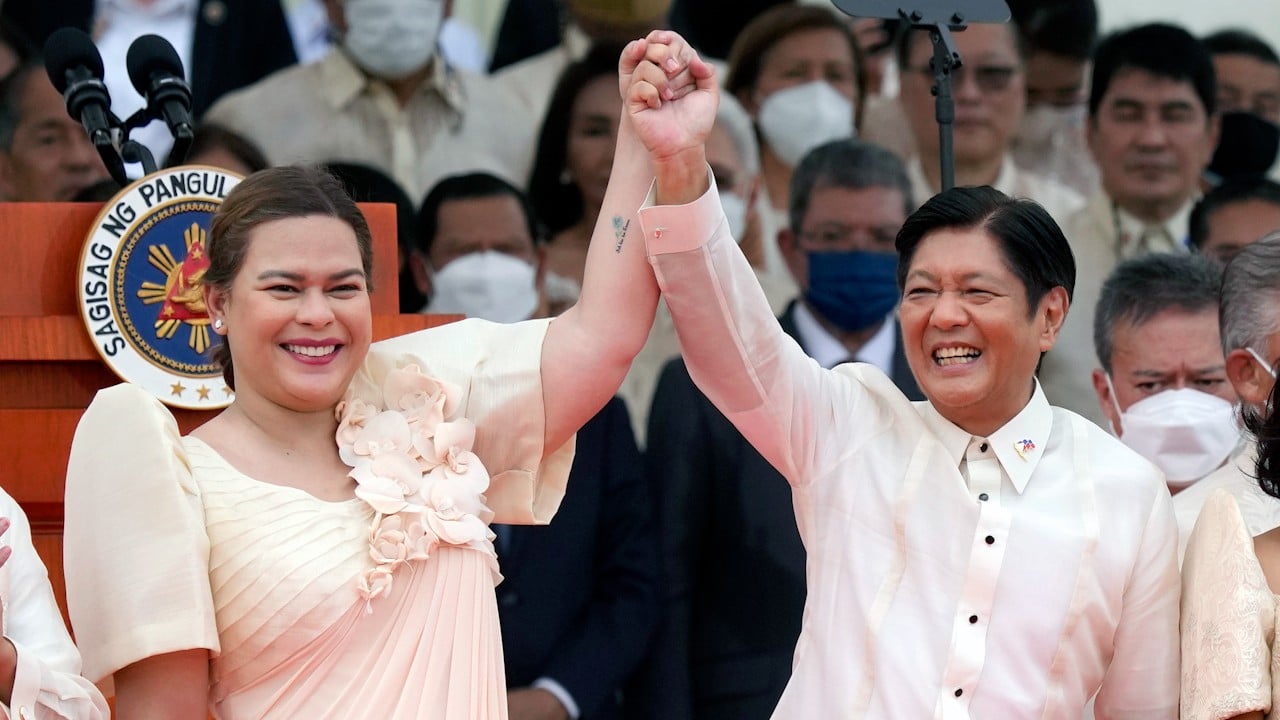
Duterte-Carpio had largely kept silent whenever her allies badmouthed Marcos, said Cleve Arguelles, political scientist and head of polling firm WR Numero, “but now, they [her camp] can clearly spell it out for Filipinos … what their alternative vision is”.
Ona suggested the Duterte camp may “play the victim card”, positioning the vice-president’s present controversies as persecution by the Marcos faction.
“She will definitely accuse the Marcos administration of being a US lackey and claim that the situation [in the South China Sea] is drawing us closer to war,” Ona said, referencing Manila’s recent moves to strengthen ties with Washington against growing Chinese influence
Observers expect these attacks to intensify as the candidacy filing period for next year’s midterm elections in October approaches.
“I think the next few months will be spent on consolidating their forces and their allies and coming up with a ticket that would represent the Duterte faction. That’s going to be tough as they are going against Malacañang, and Malacañang is full of resources,” Arguelles said, referring to the presidential palace.
Duterte-Carpio’s open defiance of Marcos could disadvantage her if she loses access to the resources she previously enjoyed as an ally, Arguelles said. It may also provoke a backlash from Filipino voters, who traditionally “punish” vice-presidents seen as opposing their bosses.
Her enduring popularity – and her family’s populist appeal – may help mitigate these risks, however. A March survey by WRNumero showed she had a 60 per cent approval rate, compared to Marcos’ 45 per cent, while in an April Pulse Asia poll, she led top government officials’ approval at 67 per cent, well ahead of Marcos’ 55 per cent.
“With her popularity, I think that she will be a formidable opposition figure. That’s why the [midterm elections] are important. It will be a referendum of the Marcos administration’s performance and a gauge of public support for the Dutertes,” Ona said.
Sara both invokes and distances herself from the Duterte legacy
In announcing her cabinet resignation, Duterte-Carpio continued to “invoke the Duterte legacy” through her messaging, according to sociologist Athena Charanne Presto of the University of the Philippines.
She was not resigning out of “weakness” but out of genuine concern for teachers and young people, the vice-president said at a farewell press conference at the Education Department on Wednesday – without providing a specific reason for her exit.
“We see how Sara both invokes and distances herself from the Duterte legacy,” Presto said.
“She invokes the Duterte legacy by echoing themes of toughness and pragmatism, which are central to her father’s image … [yet distances herself] by adopting a more inclusive tone towards women who might have felt alienated by her father’s rhetoric.”

A many-sided opposition
Despite her cheerleaders’ proclamations, Duterte-Carpio will face an uphill battle positioning herself as the leader of the Philippines’ diverse opposition landscape, which includes political figures with many differing motivations.
“It can be out of principle that you disagree with the actions and policies of the party or government in power,” Arguelles said.
“It can also be about narrow political ambitions and your own political agenda. [Vice-president] Sara fits that latter case more as it has something to do with the Duterte family’s political ambitions in 2025 and 2028.”

“Genuine opposition is built on a foundation of accountability, transparency, and genuine concern for the people – qualities that are not evident in VP Sara’s track record. Her resignation did not come with any admission of responsibility or a shift in principles and convictions,” Liberal Party spokeswoman Leila de Lima said in a statement.
“How can someone who remains accountable to this day, and is still being held accountable by the people, be considered part of the opposition?”
However, it remains to be seen whether the Liberal Party can regain its former political strength and influence through endorsements of local and national candidates in the coming election.
A potential “three-way fight” is shaping up between the Marcoses, Dutertes, and the Liberal Party-allied opposition, according to Arguelles.


